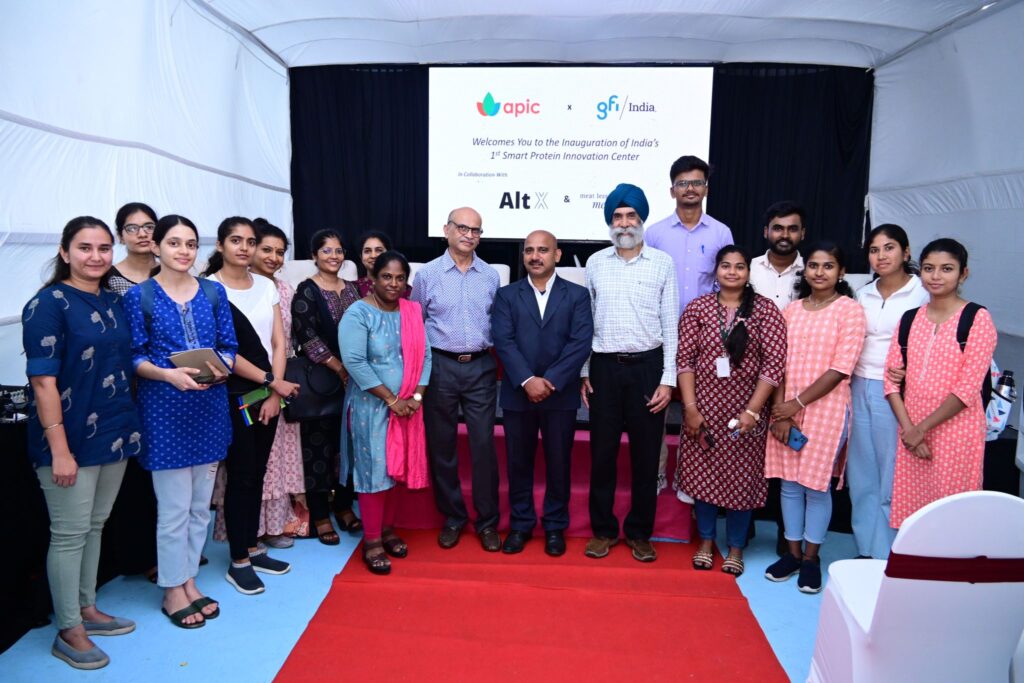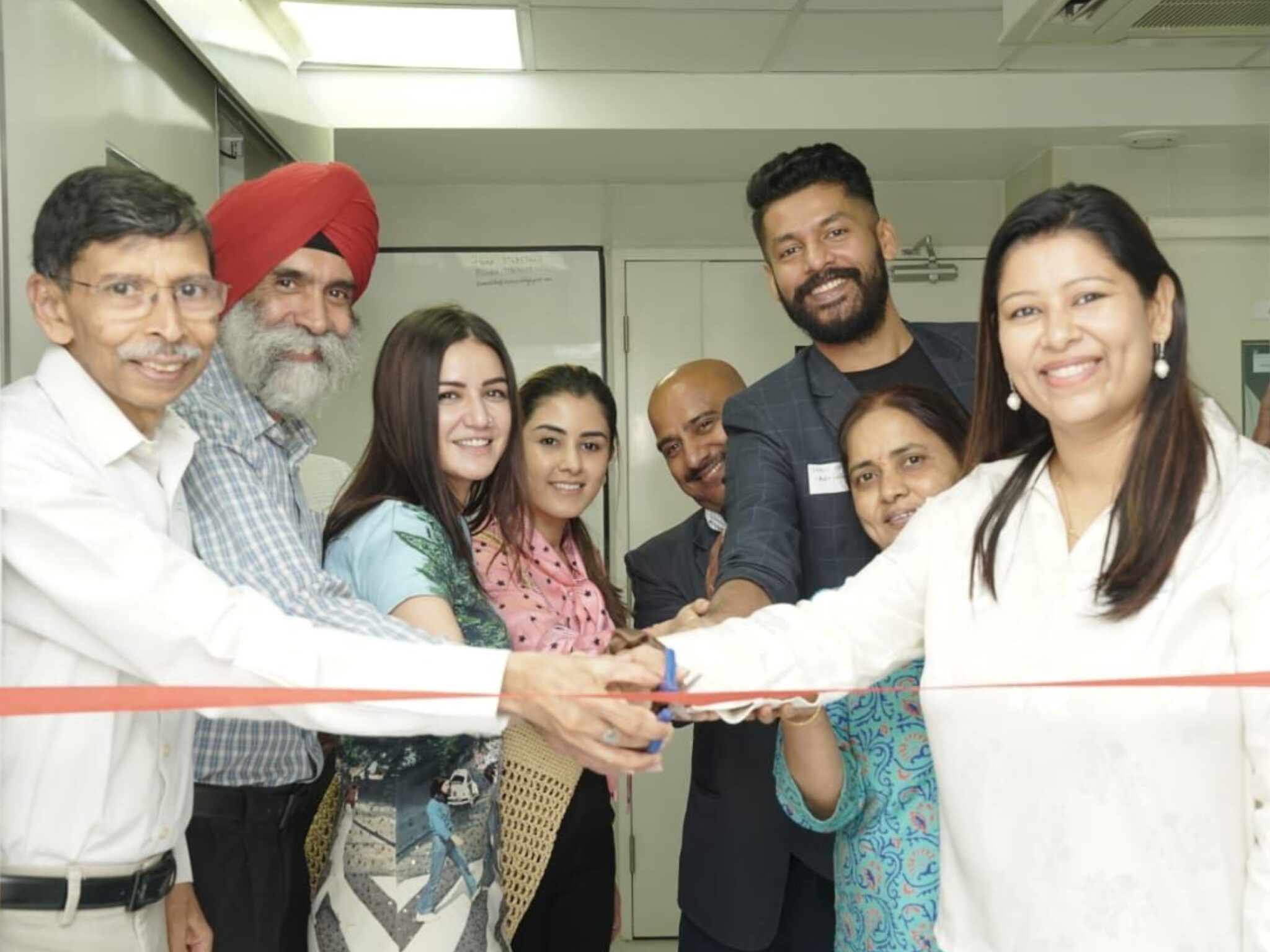Incubate & Commercialise: Two New Alternative Protein Centres Signal Industry’s Potential in India
5 Mins Read
In the last week, two new centres dedicated to smart proteins have opened in Bengaluru, India, aimed at incubating alternative protein startups and helping them manufacture and commercialise their products.
India has the third-largest startup ecosystem in the world, but it’s also the third-most polluting country in the world. As its record population continues to grow, so do its protein needs – however, food accounts for a third of its GHG emissions, and the need for alternative proteins has never been more apparent.
Research suggests that, by 2060, 85% of India’s protein production must come from novel and traditional plant-based sources if the country is to decarbonise. Its current pledge of net zero by 2070 is wildly off-target, with emissions expected to double instead by 2040.
To help the nation on its protein transition path and meet its climate ambitions, a wave of startups and facilities are innovating with alternative proteins, which represent a burgeoning industry in India. But these startups need help, as a report released last week by think tank the Good Food Institute (GFI) India and Bengaluru’s IKP Knowledge Park suggested.
These players need specialised equipment, infrastructure and mentorship to scale up from lab production to commercial levels, and a heavier capital flow to realise their technologies. And now, two new smart protein centres have opened specifically to support these startups.
Incubation hub combines modernised equipment and mentorship

During the unveiling of the joint report, GFI India and IKP announced the establishment of the Centre for Smart Protein and Sustainable Material Innovation in Bengaluru today. Located in the city’s southeastern tech neighbourhood, the facility was born out of an MoU signed by the two organisations last year, aiming to support startups with incubation and product development.
The hub will provide plant-based, cultivated and fermentation companies with access to state-of-the-art equipment and expert mentorship to turn early-stage ideas into innovative protein products. The centre is equipped with biosafety cabinets, shaker incubators, freezers, homogenisers, and ISO7 ‘cleanrooms’ (utilised in the biotech sector for CPG manufacturing). It can support up to 20 startups, who will have round-the-clock access to the amenities.
The GFI India-IKP report explained that an incubation ecosystem was imperative for Indian alternative protein startups across the value chain – as of 2022, at least 113 companies were working on novel foods in the country, in a market that was worth $42M.
“This sunrise sector in India holds immense promise, and with the right support, it has the potential to emerge as a global leader,” said Deepanwita Chattopadhyay, chairperson and CEO of IKP Knowledge Park. “India’s exceptional scientific talent and manufacturing prowess give a headstart in building a transformative industry with the potential to ensure food security for all.”
IKP is offering mentorship programmes across technical, IP, regulatory, marketing and business strategy domains, which will provide comprehensive support to incubated startups. The knowledge park is additionally raising funds to expand the centre’s capabilities, and has signed multiple MoUs to advance the project, including one with the Bühler Group.
“We are grateful to IKP for recognising the sector’s potential and creating a robust platform to plug gaps in infrastructure, specialised guidance, and commercialisation,” said Sneha Singh, acting managing director of GFI India.” Together with the right partners, GFI India is committed to building pioneering smart protein technologies that can have far-reaching impacts on India’s agriculture, climate change adaptation, nutrition security, and economic growth.”
R&D hub aims to help startups launch to market

Just a day earlier, GFI India signed an MoU to help launch the Alternative Proteins Innovation Center (APIC), an integrated facility for ingredient and product development situated on the outskirts of Bengaluru. APIC provides R&D services to help smart protein startups scale up, commercialise and even manufacture end products.
This centre encompasses multiple stages of product development, from lab scale to pilot production – currently, it can support the commercialisation of plant-based products like dairy analogues. Milk is by far the largest segment of India’s alternative protein market, with nearly two-thirds (66%) of startups working on such products. Research by GFI India suggests that about half of the country’s residents are aware of plant-based milk, of which 23% have tried it.
The partnership between APIC and GFI India will involve joint research projects, knowledge sharing, capacity-building programmes like workshops and information dissemination events, and training programmes to upskill and educate stakeholders.
“We firmly believe that this synergy will not only accelerate scientific knowledge building and sharing but also pave the way for innovative solutions that can be readily commercialised, benefiting entrepreneurs, startups, and ultimately, consumers,” said Singh.
Pranesh Sridharan, chief innovation officer of APIC added: “We have an impressive team of experts with the knowhow of plant protein extraction, isolation, application development in plant-based, fermented, and cultivated proteins, and a combined industry experience of over 125 years. We look forward to curating and developing sector-building programmes that can address current gaps in infrastructure access and knowledge transfer in smart protein processing and R&D.”
APIC also intends to sign a deal with climate VC AltX Ventures to support startups in this space – Indian alternative protein startups saw a modest investment of $17M between 2021-22, a small share of the $562M total that was injected into APAC companies in 2022. But an investor survey by GFI India last year indicated that 99% of respondents remain optimistic about the sector’s potential.
Government bodies have invested in this space, too, with multiple research grants for cultivated meat from the Ministry of Science and Technology, and a joint project between the ICAR-Central Marine Fisheries Research Institute and New Delhi-based startup Neat Meatt to develop cultivated seafood. Meanwhile, the Food Safety and Standards Authority of India (FSSAI) is reportedly drafting a regulatory framework for the commercial approval of cultivated meat.



